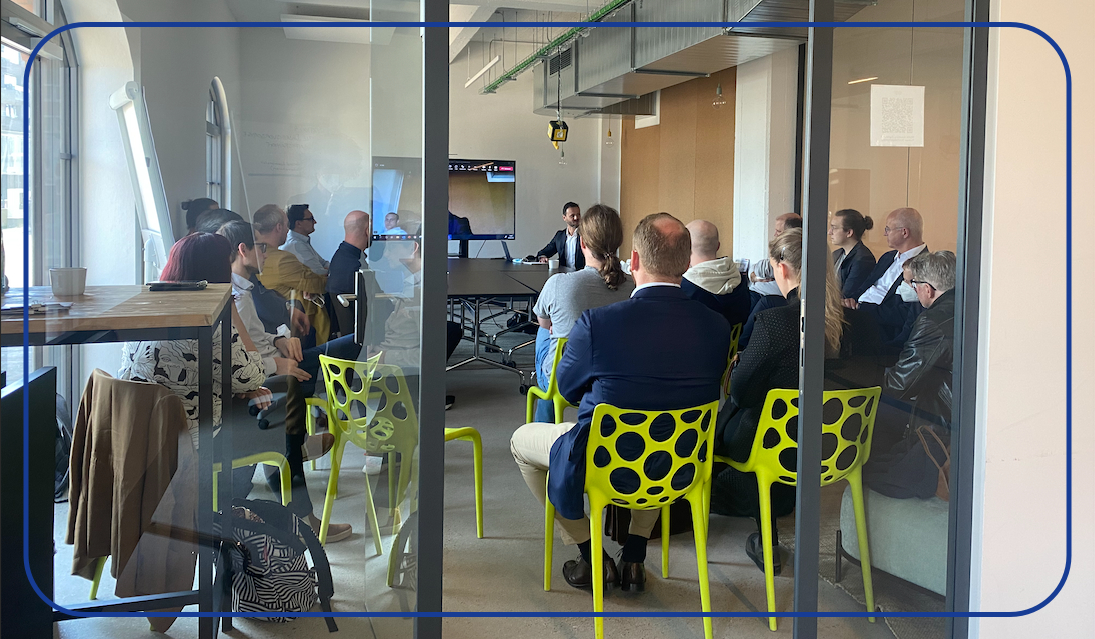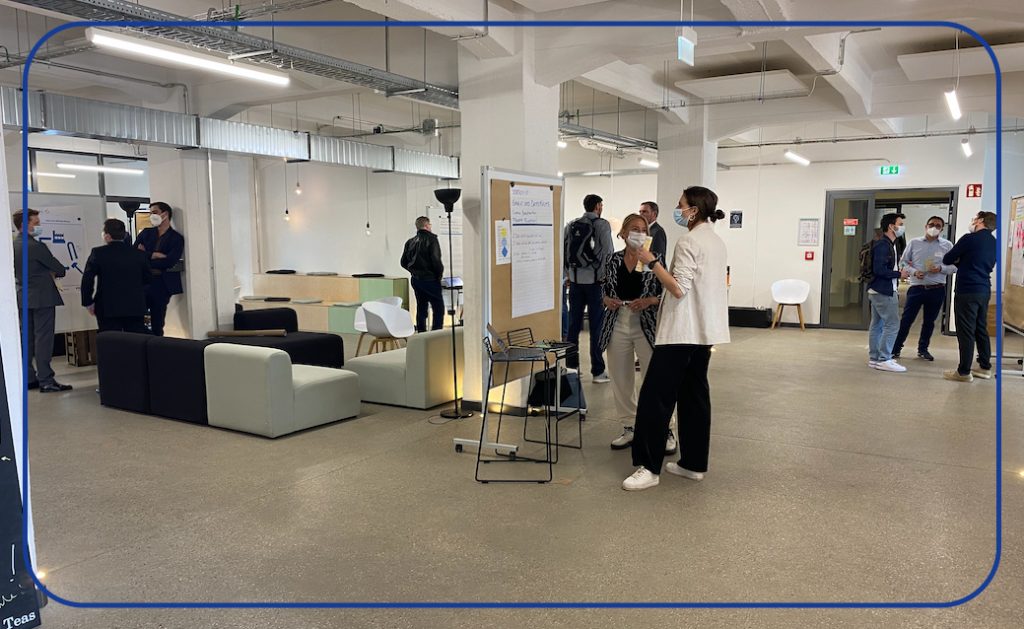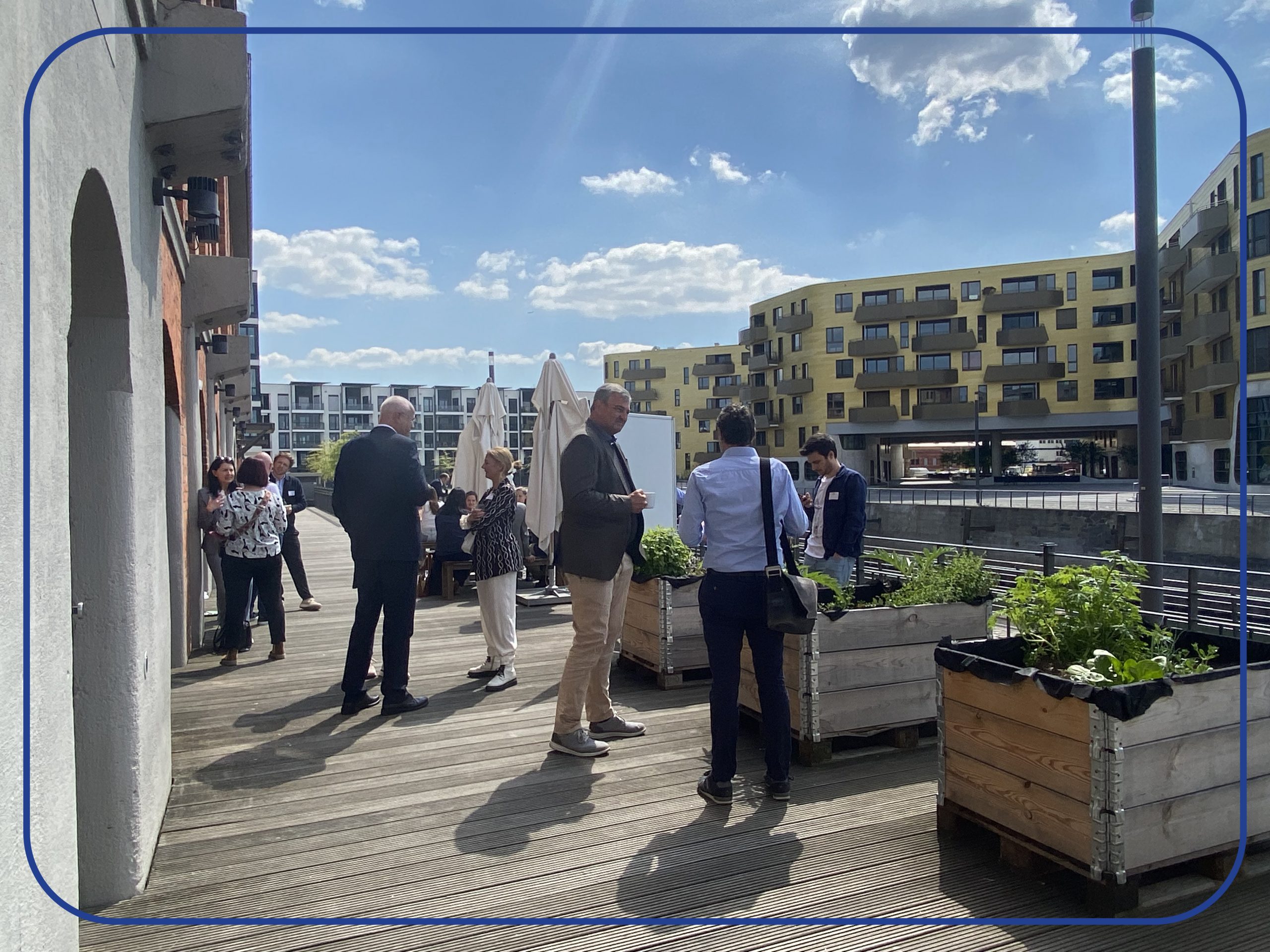Review: The Urban Data Summit 2022

A lively exchange of ideas, lots of information about urban data use, and “Spundekäs” cheese for everyone took place on April 28 at the Gutenberg Digital Hub in Mainz, where the first Urban Data Summit was organized by Mainzer Stadtwerke, the Association of Municipal Enterprises (VKU), and the Data Competence Center Cities and Regions (DKSR).
What concrete added value does the use of data create in urban design? And how can closer cooperation between cities and regions be used to increase it? We sought and developed answers to these questions in various interactive formats with the approximately 60 participants.
Joint paths of digital urban development
In the first panel of the day, three different working groups addressed the focus topic of inter-municipal cooperation. An overview of the learnings:
- There is a great need for a closely networked open source community for municipal administration in cooperation with technologically experienced actors.
- The focus must be on building up competence within the municipalities in order to be able to act and make decisions in a self-determined manner.
- Municipal companies play a central role in the use of data in urban design. They know local conditions, actors and needs. Since they are usually majority publicly owned, the city or municipality has a secure say in the use of data or the design of digitization projects. This in turn strengthens trust in the use of data by municipal companies on the one hand, and on the other hand ensures that digitization processes and data use benefit the common good.
The success of the open source community is determined above all by its governance – in other words, its set of rules. - Who is allowed to edit and contribute the codes? And who ensures the quality of the codes? These questions should be dealt with centrally by a single source.
- Community approaches can address a number of open source problems, especially in the context of smart cities / smart regions (keyword: critical infrastructure, safeguarding services of general interest). A large number of existing open source solutions based on open standards enable simple and direct experimentation, lower the hurdles to getting started with data-based applications – and can thus serve as a quick lever for innovation.
- Ultimately, it is important not to aim for one hundred percent success: Instead, it is important to think outside the box, actively test and evaluate unsuccessful projects for future procedures. Or, to paraphrase a well-known sports equipment manufacturer: Just do it!

Gaia-X paves the way for pan-European cooperation
In the afternoon, the event moved to the next level: Europe. In an infoparcours, in which the participants completed a dozen stations within sixty minutes, there was a wide range of information and exchange on architecture, actors, best practices and perspectives of the GAIA-X digital ecosystem. We were able to count on representation from the Gaia-X Hub Germany, the Fraunhofer Gesellschaft, VKU, acatech, Materna, FIWARE and other exciting organizations.
Our conclusion from the individual stations: GAIA-X holds important solutions for a number of challenges in urban data use – first federation services are currently being developed and piloted as open source tools. In the context of smart cities, however, GAIA-X is still an abstract future scenario for many; few see the infrastructure as a concrete solution option. The needs of municipalities, for which GAIA-X offers support (e.g., sovereign and secure use of smart meter data for local energy communities), must therefore be brought closer together with the GAIA-X offering in the future.

In between, of course, networking was not neglected: The Gutenberg Hub directly on the banks of the Rhine provided with its terrace on this day the perfect place to sunbathe, snack and chat.

We would like to thank all speakers and participants as well as especially the Mainzer Stadtwerke and the Verband kommunaler Unternehmen (VKU) for the joint organization of the Summit! Let’s make sure that words are followed by data and actions!
The results of the event, with quotes from the organizers, are captured in the Urban Data Summit Memorandum.
Read too much? A video with voices from the Summit is available on the YouTube channel of Mainzer Stadtwerke AG.
The Summit was reported on by Der Neue Kämmerer, #stadtvonmorgen, Tagesspiegel Background Smart City & Verwaltung on May 3, 2022, and the Mayen-Koblenz region, among others.